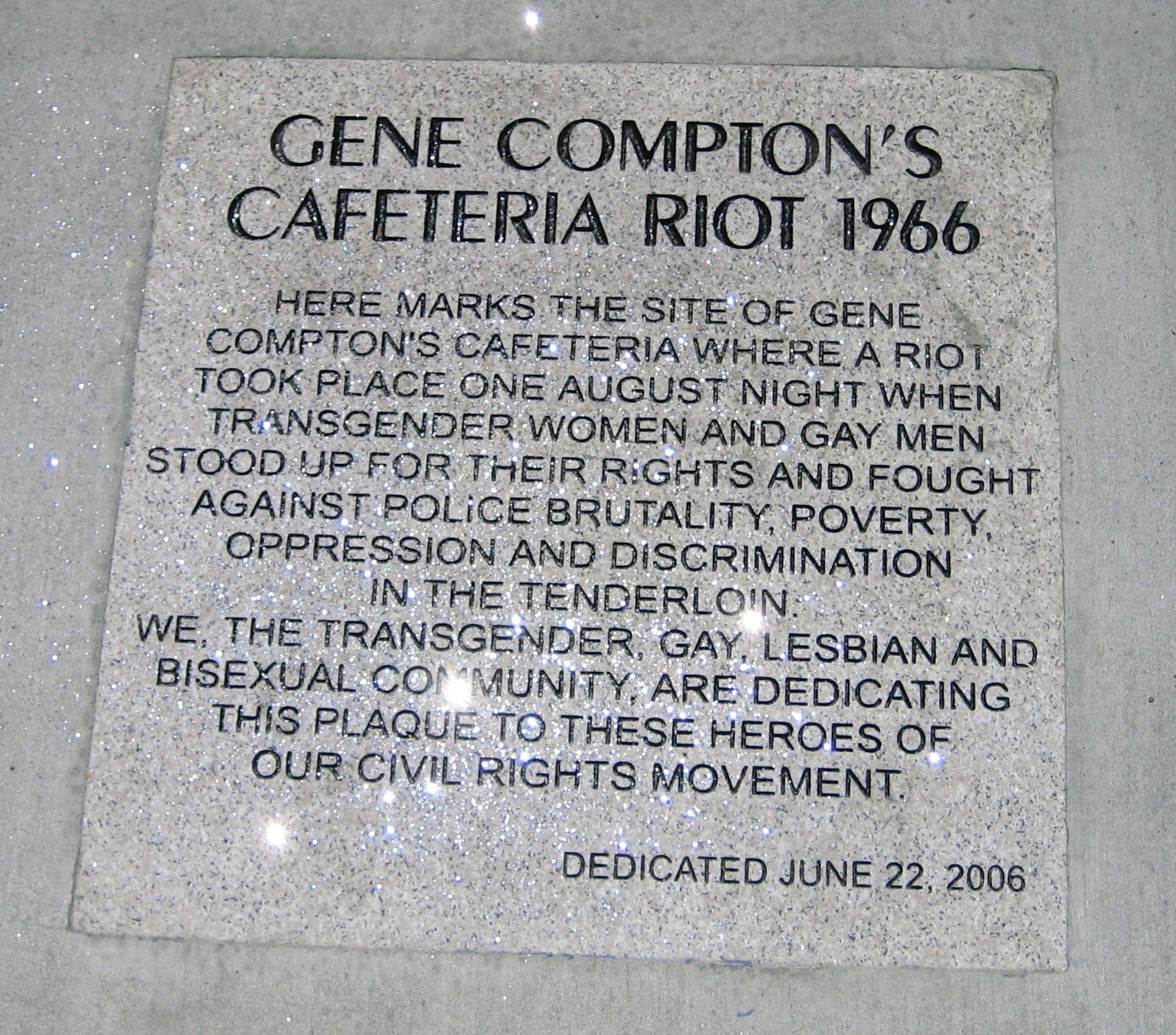The Trans Uprising That History (Almost) Forgot
Years before the Stonewall rebellion, this lesser-known San Francisco riot ignited a tradition of queer resistance.
In the 1960s, Black and Brown trans women and drag queens went head-to-head with cops amidst mounting state repression. The ensuing protests outside a gathering space for queer youth marked a watershed moment for the LGBTQ liberation movement.
I am talking, of course, about the Compton’s Cafeteria riots.
In August 1966—three years before Stonewall—a San Francisco diner by the name of Gene Compton’s Cafeteria served as a de facto hang-out for the Tenderloin District’s queer community. Police had long since been harassing gender non-conforming Californians for “cross dressing.” Tensions erupted when law enforcement descended on the establishment late one summer night to apprehend a patron, and as the modern telling goes, a trans woman tossed her coffee onto a policeman. This sparked others to fight back, too—reportedly throwing sugar shakers and plates, defacing a cop car, and setting a news stand on fire. A pressure valve had burst after years and years of targeted state violence against trans people.
“If the buttons was on the wrong side, like a blouse, they would take you to jail because they felt it was female impersonation,” said Amanda St. Jaymes, a trans woman and local hotel owner, in Susan Stryker’s 2005 documentary Screaming Queens. "We got tired of being harassed. We got tired of being made to go into the men's room when we were dressed like women. We wanted our rights."
About a month prior, the owner of Compton’s had allegedly called law enforcement on a group of trans women, resulting in an organized picket of the establishment, spearheaded by young queer activists who called themselves Vanguard.
The social unrest of that fateful summer occurred in tandem with other burgeoning movements. Anti-racist, anti-war, and anti-capitalist formations were cropping up faster than the authorities knew what to do with.
"We didn't think this was a big deal," Tamara Ching, a Compton’s regular, told NPR in 2015. "It was a natural thing for people to do back then, to protest."
Due to the lack of media coverage of the event, the entire ordeal was almost lost to time, until Stryker, a trans historian, unearthed a brief reference to Compton’s in the GLBT Historical Society Archives. Many of the details remain uncertain. Who threw the first sugar-shaker; who, if anyone, was actually arrested and booked; even the exact date of the affair.
But Compton’s is making a comeback. In May of this year, an immersive theatre show depicting the riots opened mere blocks from the original restaurant. That same month, activists dropped banners from the roof of the old Compton’s building, located at 101 Taylor Street, to protest its current owners—the GEO Group, one of the most prolific and lucrative forces in the private prison industry. The banners depicted the words: “Liberate Compton’s.”
In a bitter twist of fate, the state of California where Compton’s resided has become an unexpected battleground for queer rights. Trans people and their allies, including lawmakers, want to maintain the state’s status as a historic bastion for trans civil liberties. But Governor Gavin Newsom seems willing if not eager to allow the Trump regime to begin peeling back the layers of state protections for transgender people. Nonetheless, California became the first state to recognize Trans History Month in 2023, after grassroots efforts from local organizers and state officials.
Now international attacks on trans life and history are making a comeback, too. Consequently, it has become all the more vital to preserve trans histories. When we ground ourselves in our trans pasts, trans futures become more possible to imagine. Only time will tell what small or seemingly mundane act of resistance today will be heralded as the vanguard of tomorrow.




As the author of the text engraved in the sidewalk placque depicted here, I am grateful for your post emphasizing the importance of our collective histories. Thank you to Susan Stryker for following her instincts in recognizing the importance of an action that San Francisco's mainstream media and institutions tried to bury. Thank you to S. Baum for amplifying the message. And thank you to every trans and queer person who has lived and worked to make and preserve our history. We WON'T be erased!!
Not forgotten here in the San Francisco Bay Area! Thanks for raising this up.